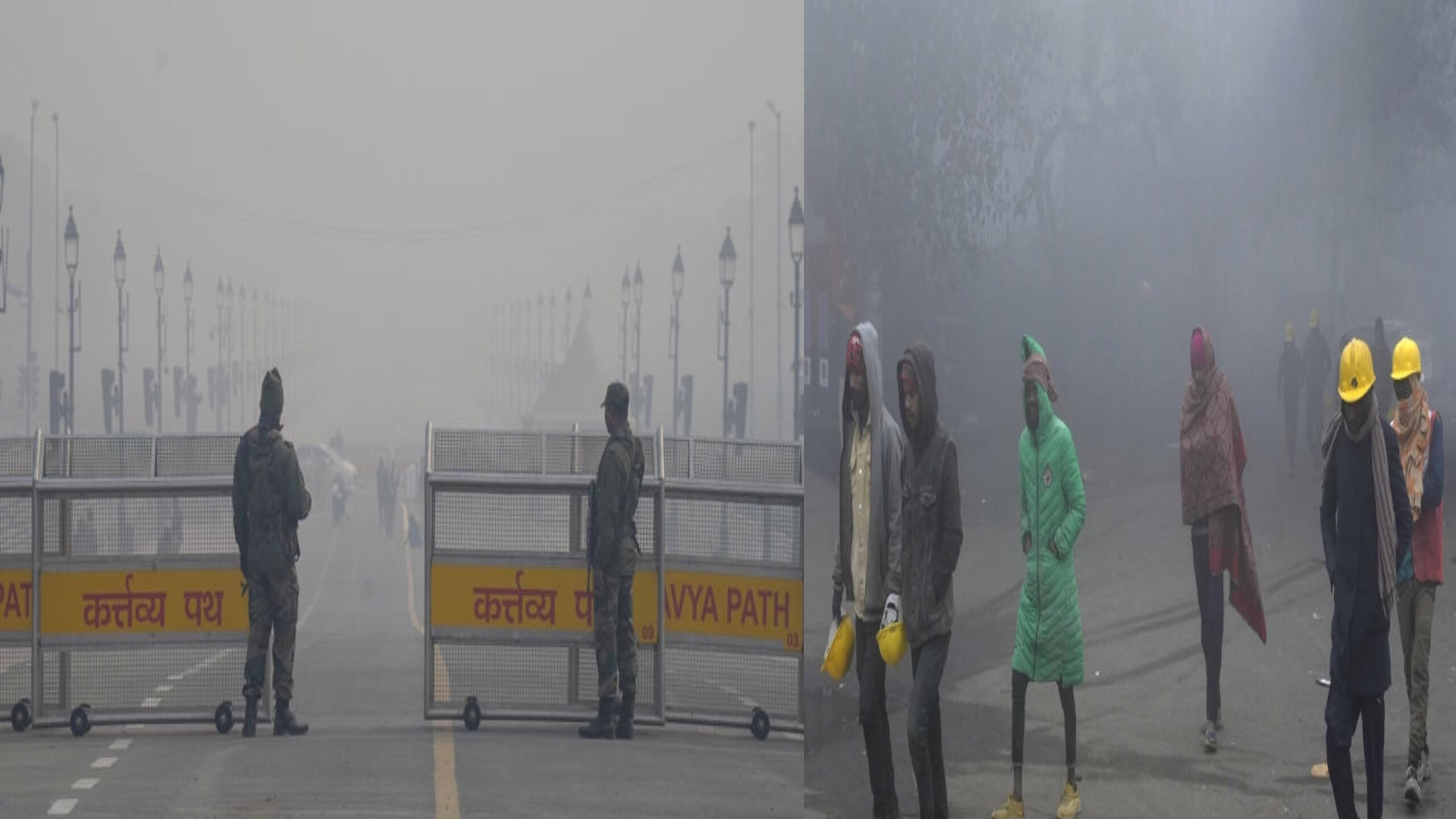The India Meteorological Department (IMD) has issued a warning for dense fog in Delhi on Friday morning, with the maximum and minimum temperatures expected to be around 18 and 7 degrees Celsius, respectively. The weather department has issued a “yellow alert” for dense fog in the national capital and adjoining areas for the next two days.
On Thursday morning, Delhiites woke up to another foggy start as the minimum temperature settled at 6.6 degrees Celsius, just below the season’s average. The maximum temperature recorded was 18.6 degrees Celsius, a notch below normal, according to an IMD bulletin.
The impact of the dense fog was felt in the transportation sector, with eighteen trains bound for New Delhi running late due to reduced visibility. The Indira Gandhi International (IGI) Airport also experienced dense fog, with visibility ranging between 50 and 100 meters from 12.30 am to 6.30 am. Although visibility has improved, currently standing at 300 meters, the situation is being closely monitored.
Weather conditions are categorized based on visibility levels, with very dense fog when visibility is between 0 and 50 meters, between 51 and 200 meters considered dense, 201 to 500 meters categorized as moderate, and 501 to 1,000 meters as shallow.
Adding to the concerns, the Central Pollution Control Board (CPCB) reported that the 24-hour average Air Quality Index (AQI) on Thursday settled at 318, falling within the “very poor” category. The AQI is a measure of air quality, with ranges between zero and 50 considered “good,” 51 to 100 as “satisfactory,” 101 to 200 as “moderate,” 201 to 300 as “poor,” 301 to 400 as “very poor,” and 401 to 500 as “severe.”
The relative humidity recorded at 5.30 pm was 72 percent, according to the IMD bulletin. This information suggests that the atmospheric conditions are contributing to the formation and persistence of dense fog in the region.
The IMD’s yellow alert for dense fog underscores the need for residents and travelers to exercise caution during their commute, as reduced visibility can significantly impact road and air travel. It’s advisable for individuals to stay updated on weather forecasts and take necessary precautions to ensure their safety.
In the context of transportation disruptions, the delayed train services bound for New Delhi highlight the practical implications of foggy conditions on the daily lives of citizens. Travelers are encouraged to plan accordingly, considering potential delays and disruptions in their schedules.
The IGI Airport’s experience with dense fog further emphasizes the challenges faced by air travel during adverse weather conditions. While visibility has improved from the earlier recorded 50-100 meters, monitoring the situation remains crucial for safe take-offs and landings.
The air quality concerns, as indicated by the “very poor” AQI, raise environmental and health considerations. Residents are advised to take precautions, especially those with respiratory conditions, as poor air quality can have adverse effects on health.
The CPCB’s air quality index is a valuable tool for gauging the overall air quality in the region. Continued monitoring of the AQI provides insights into the effectiveness of air quality management measures and prompts the need for further actions to address pollution levels.
In conclusion, the combination of dense fog, transportation disruptions, and poor air quality in Delhi highlights the multifaceted challenges posed by adverse weather conditions. It serves as a reminder for residents and authorities to stay vigilant, take necessary precautions, and work towards sustainable solutions for improved air quality and weather resilience in the region.

